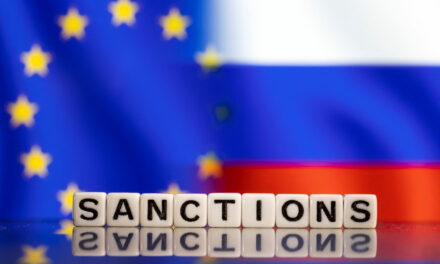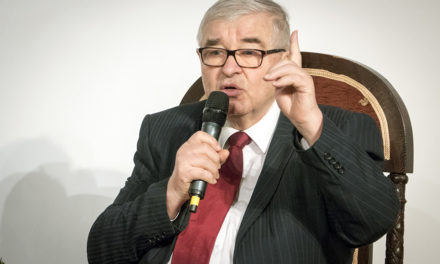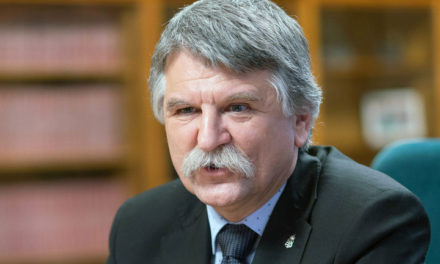At my last job, in the Hungarian Parliament, I had the opportunity to participate in a special area of foreign affairs work - begins András Kelemen.
Because it is natural that a specialized ministry deals with sectoral policy. It is also beginning to be accepted that international relations built on civil lines can even grow into a world political factor. (There are constructive and destructive examples of this.) But what is less well known is how individual parliaments keep in touch with each other and how they act as mediating forces. First of all, there is the Interparliamentary Union, in which Hungary is a founding member. At a basic level, it ensures the possibility of contact between the representatives of each participating parliament, especially through the friendship groups created in it. As a good example, I can say that as the repeatedly elected leader of the Hungarian-Turkish friendship group from the regime change to 2010, I was able to constantly communicate with the alternating ambassadors and the members of the Turkish Grand National Assembly who showed interest in us - as well as, of course, with the friendly Turkish and Hungarian civil organizations. At the same time, this bridged the discontinuity that personal changes mean in politics. And between 2010 and 2019, as the president's chief advisor on foreign affairs, I was able to continue the construction in this area as well: this is how we opened the way for Hungary to the cooperation forums of the Turkic-speaking states. As the only non-Turkish-speaking country as a member, we managed to do this in such a way that, as a result of two decades of relationship building, in 2013 László Kövér was received not only by the president of the Turkish parliament, but also by the prime minister and the president of the state during his official trip to Turkey. In the same year, in Ankara, I officially announced the intention of the Hungarian Parliament to join the cooperation forum formed by the parliaments of the Turkic countries (TURKPA). After our admission, our trip to Baku took place: in 2014, Sándor Lezsák, as the Vice President of the Parliament, already participated in the next session of the Parliamentary Assembly of Turkish-Speaking Countries. The next step in the process was the establishment of intergovernmental relations. This happened with our joining the Turkish Council (TURKKON) in Csolpon Ata. And as the only EU member, Hungary opened the only representative office of the Turkish Council within the EU in Budapest.
This story is a good example of how to expand our foreign policy scope with new tools.
However, the most important foreign policy movement was among the EU member states and candidates for membership. As a relatively small country with definite goals, in order to be effective in the Union, we needed to build relationships in this area. We sought to enhance and coordinate the participation of national parliaments in the EU. Because it has become more and more obvious that the European Parliament not only does not replace this, but wants to become more and more a separate branch of power. And since the representatives there represented less and less the interests of both their country of origin and the population of Europe, we were firmly convinced that the word should be given back to European civil society. This is better represented by the parliaments of the individual member states than the European head of water. That is why, despite the bureaucratic difficulties, we tried to encourage the regional co-parliaments, especially the members of the V4, to take action - that is, to participate in EU decision-making.
The influence across the ocean affecting our continent gave special weight to our efforts here. In the mid-2010s, the Újvilág tried to assimilate our old Europe with two large contracts. One was TTIP, the other was CETA.
The essence of TTIP, or Transatlantic Trade and Investment Partnership in its full name, was to break down barriers to the flow of goods to such an extent that the legal regulations in the EU are as close as possible to those in the United States. The lure was that it could make trading and investing cheaper and easier. But e.g. included the adoption of a more relaxed system of food safety regulations. Also, there was strong pressure to lift the difficult-to-achieve Hungarian gene-free regulation. Furthermore, in disputed cases between the two parties - e.g. in passing new legislation - but he would have left the decision-making in the hands of a board made up of bureaucrats and industry and trade experts. In other words, he wanted to further limit the legislation of the nation-states, and thus the sovereignty of the states. The issue was finally taken off the table under Trump's presidency.
If that didn't work out, there was another similar attempt. The situation was eerily similar to the former in the case of CETA (Comprehensive Economic and Trade Agreement). This was the plan of the comprehensive economic and trade agreement between the EU and Canada, which was finally approved by all EU member states and the European Parliament, and thus entered the stage of ratification due in individual countries, and even entered into force temporarily on September 21, 2017, - and got stuck there. Its essence was the facilitation of investments, and that the majority of customs duties would be abolished. Canadian Prime Minister Justin Trudeau personally visited Brussels in October 2016. Its opponents claimed that it weakens consumer rights and food safety in Europe, and could increase unemployment on our continent. In matters of dispute between investors and the countries concerned, the decision would have been taken out of the hands of the individual countries.
In other words, a free trade agreement would have paved the way for the increasing predominance of the North American continent. (In the end, however, the subjugation of Europe did not occur in this way, but mainly through the sanctions of the US-Russian war in Ukraine.)
An essential element of our EU-related policy was our continuous activity in the Balkan states: bringing the stakeholders closer to each other and providing professional assistance in EU accession. It seemed that the West was not really interested in the fact that the Western Balkans, from Hungary south to Greece, is an explosive area vulnerable to other world powers. President Kövér and I therefore visited the countries of this area a lot, and we also organized multifaceted meetings in order to take joint action.
In summary: I would like to draw attention to the fact that in the case of smaller countries, or countries that have been attacked a lot, the contact between elected representatives can play a significant role in addition to official and "people's diplomacy". (And the Foreign Affairs Office of the Parliament helps with this.) The parliamentarian must be a real mediator: on the one hand, between the domestic decision-makers and the citizens of the country, and on the other hand, he can actively contribute to the acceptance of foreign policy and the building of the country's image; since its international network of contacts enables communication with decision-makers in other countries.












